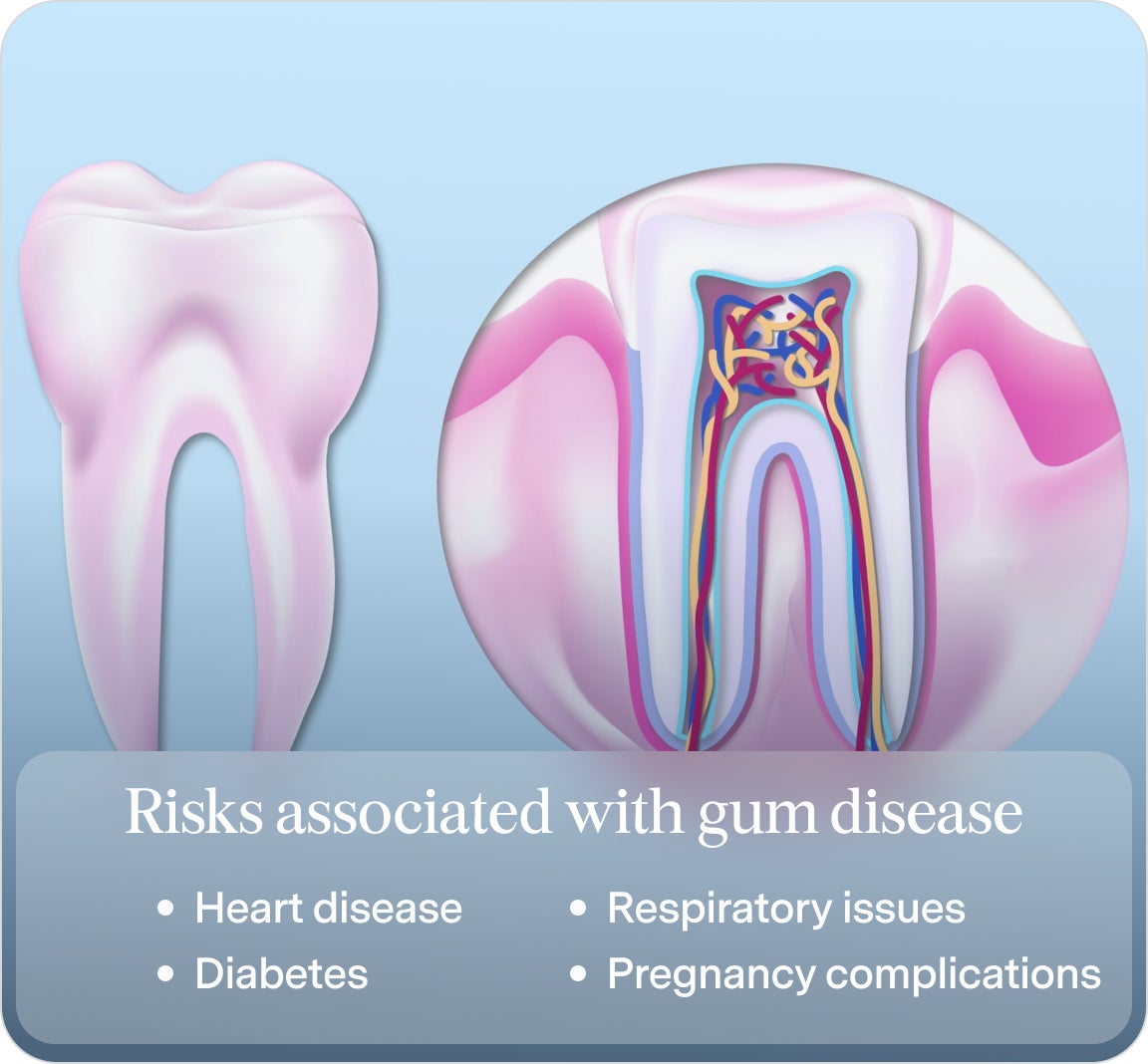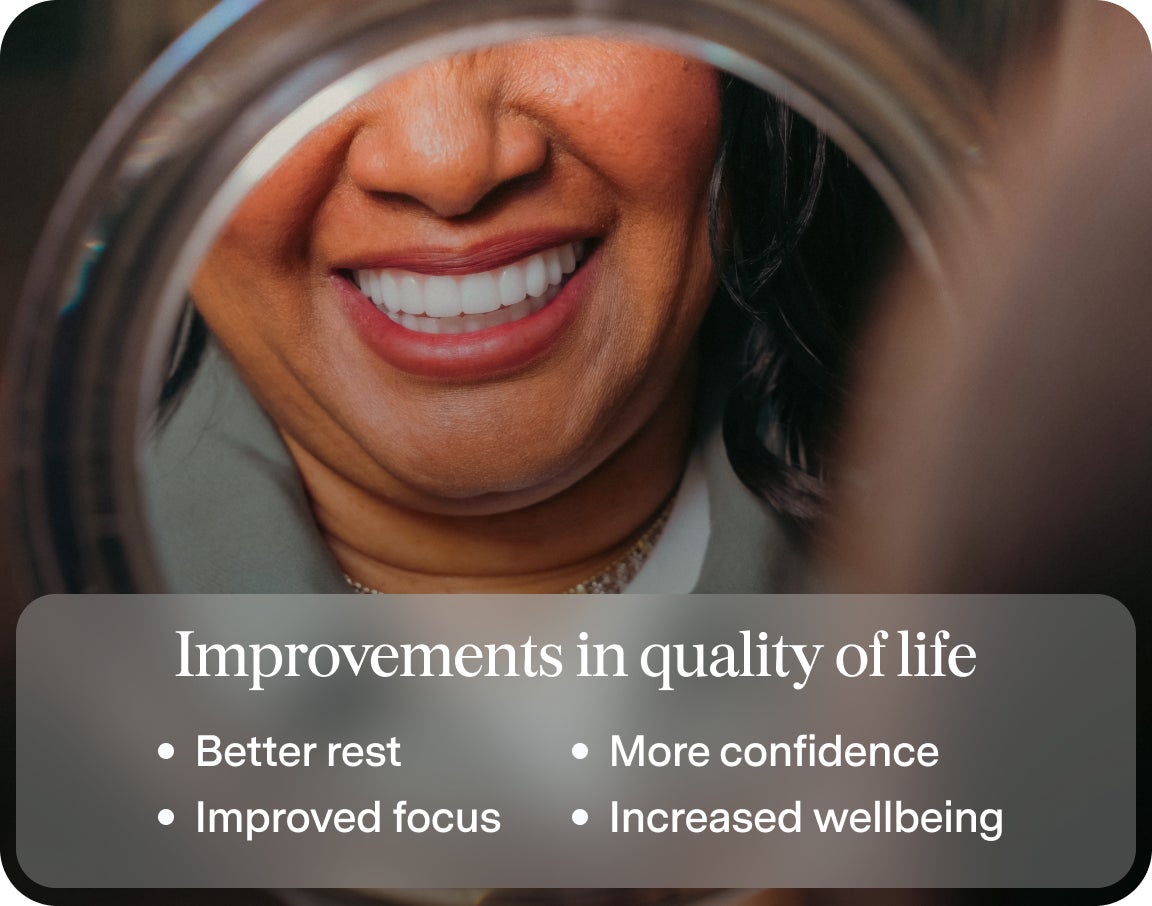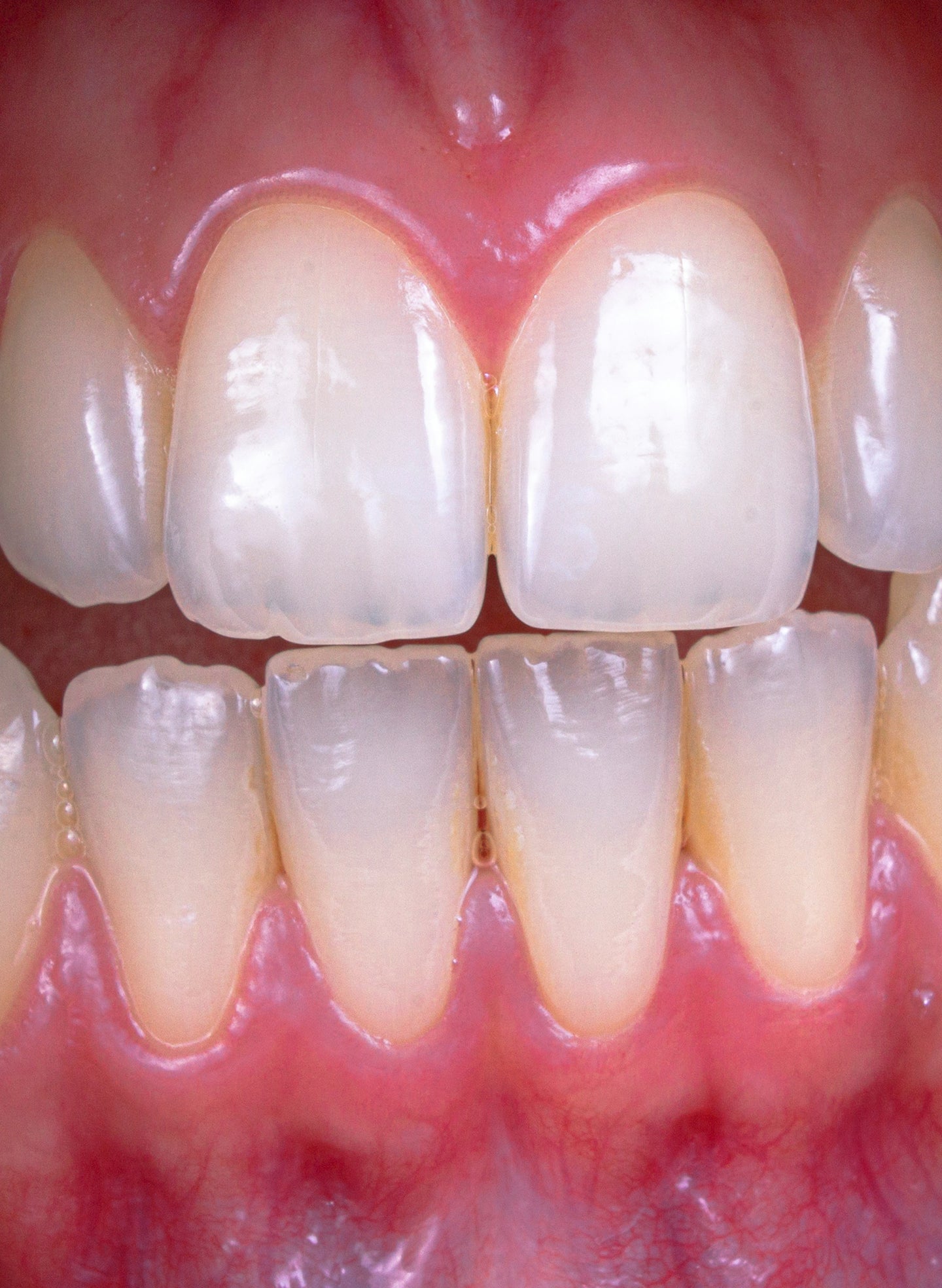Last updated 07.16.2025
How oral health affects overall health
Learn how oral hygiene affects your whole body—and how ClearChoice supports your health from the mouth outward.

Your mouth is a window into your overall health. In recent years, more and more research has highlighted how oral health can affect your entire body - from your heart and immune system to brain function and emotional well-being. This information makes one thing clear: taking care of your mouth is an investment in your whole-body health.
How oral health affects the whole body
Your mouth and body are deeply connected. Harmful bacteria from your gums can enter the bloodstream, triggering inflammation that may affect distant organs. Maintaining healthy teeth and gums is one of the most important ways to support your overall health.

Oral health and the heart
Gum disease has been linked to heart disease. When bacteria from inflamed gums enter the bloodstream, they can contribute to plaque buildup in the arteries. This can increase the risk of heart attacks and strokes.
The immune system and inflammation
Chronic gum disease can strain the immune system. Ongoing inflammation in the mouth may lead to systemic inflammation, which plays a role in conditions like arthritis, diabetes, and even some cancers.

Oral health and mental wellness
Oral health can have a profound effect on mental health. Chronic pain, tooth loss, and self-consciousness about your smile can impact self-esteem and contribute to anxiety or depression.
The mouth-body connection
The mouth is one of the body’s key diagnostic tools. Changes in oral health can reflect or even predict systemic conditions. That’s why dentists are often among the first to spot signs of larger health issues.
How oral hygiene affects health conditions

Daily habits like brushing, flossing, and attending regular dental checkups play a key role in preventing both oral and systemic disease.
Poor oral hygiene and systemic risk
Skipping dental care doesn’t just lead to cavities. Poor oral hygiene has been linked to a higher risk of heart disease, diabetes, respiratory issues, and pregnancy complications.

Conditions linked to gum disease
Gum disease has been associated with a number of chronic conditions, including:
Cardiovascular disease
Alzheimer’s disease
Diabetes
Respiratory infections
Rheumatoid arthritis
Can oral health affect nutrition or digestion?
Yes. Pain, missing teeth, or ill-fitting dentures can make chewing difficult, limiting dietary choices and affecting digestion. Healthy teeth and gums support proper nutrition and gut health.
Is oral health a window into overall health?
Dentists can often detect early signs of systemic disease during routine exams.
Signs in the mouth that signal larger problems
Pale gums, dry mouth, loose teeth, or oral sores may point to conditions like anemia, diabetes, autoimmune disease, or even certain cancers.
Early diagnosis through dental exams
Regular checkups don’t just lessen the risk of cavities—they can help identify broader health concerns before symptoms become more serious.

How oral health impacts quality of life
The impact of oral health extends far beyond the mirror.
Self-esteem and social impact
A healthy smile boosts confidence. When people feel good about their teeth, they’re more likely to engage socially and professionally.
How oral health affects sleep, mood, and energy
Oral infections or pain can interfere with sleep, affect your mood, and sap your energy. Addressing oral issues can lead to better rest, improved focus, and increased overall well-being.
Your mouth tells a story about your health. At ClearChoice, we specialize in restoring oral function and improving overall well-being. Schedule your consultation to start protecting your health from the mouth outward.
Oral and whole-body health FAQs
Why is oral health important for general health?
Because your mouth is a gateway to the rest of your body. Poor oral health can contribute to inflammation and disease in other systems.
What’s the relationship between dental care and the heart?
Gum disease bacteria can enter the bloodstream and contribute to arterial plaque buildup, which increases cardiovascular risk.
Can oral health impact brain function?
Emerging research links gum disease and tooth loss to an increased risk of dementia and cognitive decline.
How does oral health affect the immune system?
Chronic oral infections can strain the immune system and fuel systemic inflammation.
Can poor oral health affect your energy or mood?
Yes. Oral pain and inflammation can disrupt sleep and impact mental wellness, reducing energy levels and emotional resilience.
Is oral health connected to nutrition or digestion?
Absolutely. Healthy teeth help you chew and digest food properly, which supports nutritional health and gut function.
What should I ask my dentist if I’m concerned about my health?
Ask whether your oral health shows signs of systemic issues, and what steps you can take to support whole-body wellness through better dental care.



